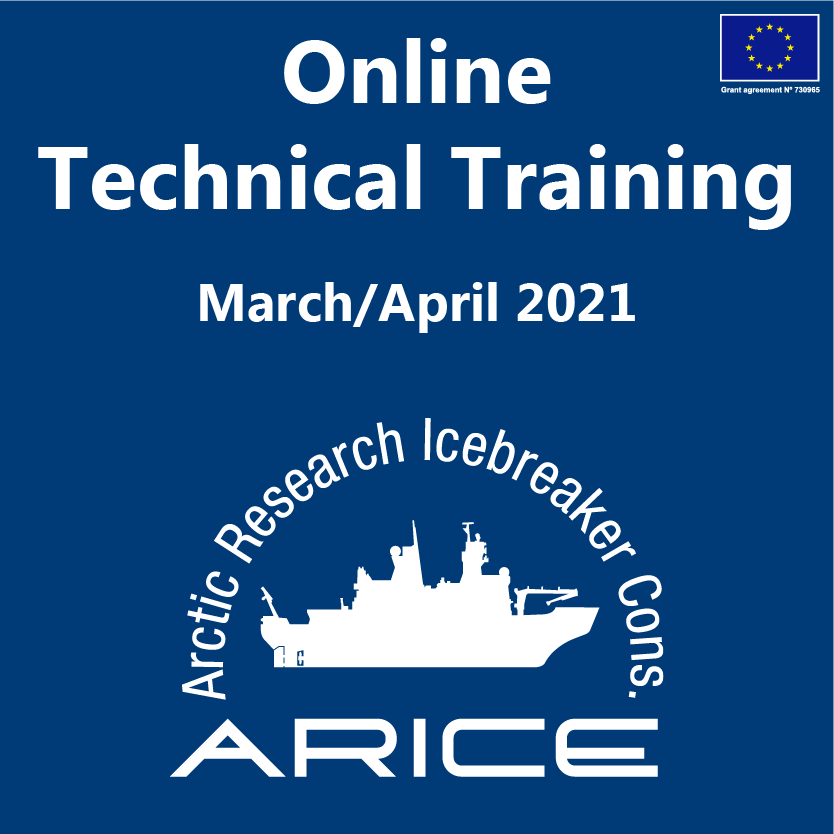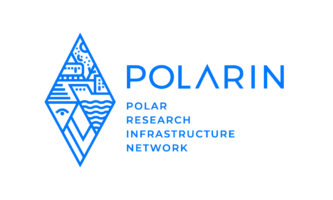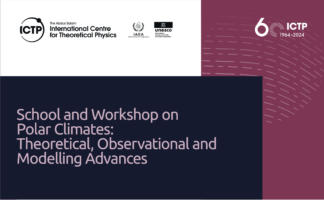https://www.apecs.is/research/apecs-projects/arice/online-technical-training.html
How to build a Sea Robot
Date: 30 March 2021
Time: 8:00 – 11:30 GMT
Elena Schiller, Construction Engineer at the Alfred Wegener Institute (HGF-MPG Group for Deep Sea Ecology and Technology), Germany
Course summary: An introduction into the engineer’s approach for developing scientific subsea technology. Emphasis is on enhancing understanding and communication between engineers and scientists in polar marine research. In addition to the theoretical part which includes principal considerations and limitations, construction design and 3D modeling, participants will use this knowledge to design a marine robot themselves!
Polar Marine Robotics
Date: 12 April 2021
Time: 8:00 – 11:30 GMT
Registration link will follow soon.
Massimo Caccia, Senior Researcher at Consiglio Nazionale delle Ricerche (CNR, National Research Council of Italy), Italy
Course summary: This course offers a historical overview of polar marine robotics, considerations and experiences for robot design in cold environments, operational and logistic aspects and experiences from the activities of the National Research Council of Italy (Consiglio Nazionale delle Ricerche, CNR). Participants will apply the knowledge gained in the course to plan a hypothetical campaign for a semi-submersible vehicle to acquire data and samples at the ice-water-air interface.
Mooring operations in polar waters
Date: 13 April 2021
Time: 9:00 – 10:30 GMT
Registration link will follow soon.
Hanne Sagen, Senior Researcher, Nansen Environmental and Remote Sensing Center, Norway
Course summary: Fixed ocean moorings are the main platforms to provide long-term observations of marine environment, covering different time scales from shorter than hourly to monthly, seasonal and multi-annual measurements. Moored instruments can measure different ocean variables, including physical, biogeochemical and biological parameters (and also collect samples and visual images) in the entire water column, also under the sea ice. However, mooring operations in the demanding, ice-covered polar areas are linked to unique challenges, related both to the platform design (instrumentation and mooring hardware) and to the manner of deployment and recovery from an icebreaker in conditions of partial or even sea ice cover. During this short course, we will introduce the main issues about how to plan, design, equip and operate a mooring for measurements in the polar region and discuss planning the campaign and specific ship operations for deployment and recovery of moorings in ice-covered waters. The details of such work will be explored using a case study with the deep ocean acoustic multidisciplinary moorings deployed under the CAATEX project for 2019-2020 in the Arctic Ocean from the Norwegian Coast Guard icebreaker KV Svalbard.
Atmospheric measurements aboard research ships: Needs, opportunities and challenges
Date: 13 April 2021
Time: 16:00 – 18:30 GMT
Registration link will follow soon.
Vito Vitale, Senior Researcher, Consiglio Nazionale delle Ricerche (CNR, National Research Council of Italy), Italy, and colleagues
Course summary: Long-term continuous ground-based atmospheric observations are strongly constrained by land distribution and are still very limited over the sea, particularly in polar regions where fixed installations (buoys) are limited by sea ice. Ship-based atmospheric measurements can potentially close an important knowledge gap, particularly with the aim of validating satellite observations and atmospheric models. This course explores the challenges of taking atmospheric measurements on research ships. A team of experts will introduce and moderate a discussion of relevant topics, the opportunities arising from new technologies and concrete examples of best practices. The overall aim is to communicate the possibility of organizing research ships expeditions as multi-domain observing platforms, which is necessary if we want to elucidate the most important mechanisms and processes that drive the climatic system in the Arctic.
Technical Science Support at the British Antarctic Survey
Date: 14 April 2021
Time: 8:00 – 9:30 GMT
Registration link will follow soon.
Bjorg Apeland, Antarctic marine engineering team, British Antarctic Survey (BAS)
Course summary: This course presents an overview of BAS’s equipment options, spares, how we do things, what we can do better, and what we think we do well, followed by a discussion on best practice.
Lab management: My lab is moving!
Date: 14 April 2021
Time: 13:00 – 14:30 GMT
Registration link will follow soon.
Aisling Smith and Natalie Ensor, Laboratory Managers, RRS Sir David Attenborough, British Antarctic Survey (BAS)
Course summary: Laboratory use on board polar research vessels raise some unique challenges for the British Antarctic Survey. A moving platform, rough seas, seasick lab users, and tight mob/de-mob windows are but a few of the unique situations Laboratory managers must navigate. Complex licensing and permitting requirements enter every aspect of work onboard and can help inform questions like ‘how do you ship a penguin?’. We explore some aspects of working on board BAS’s polar research vessels.





